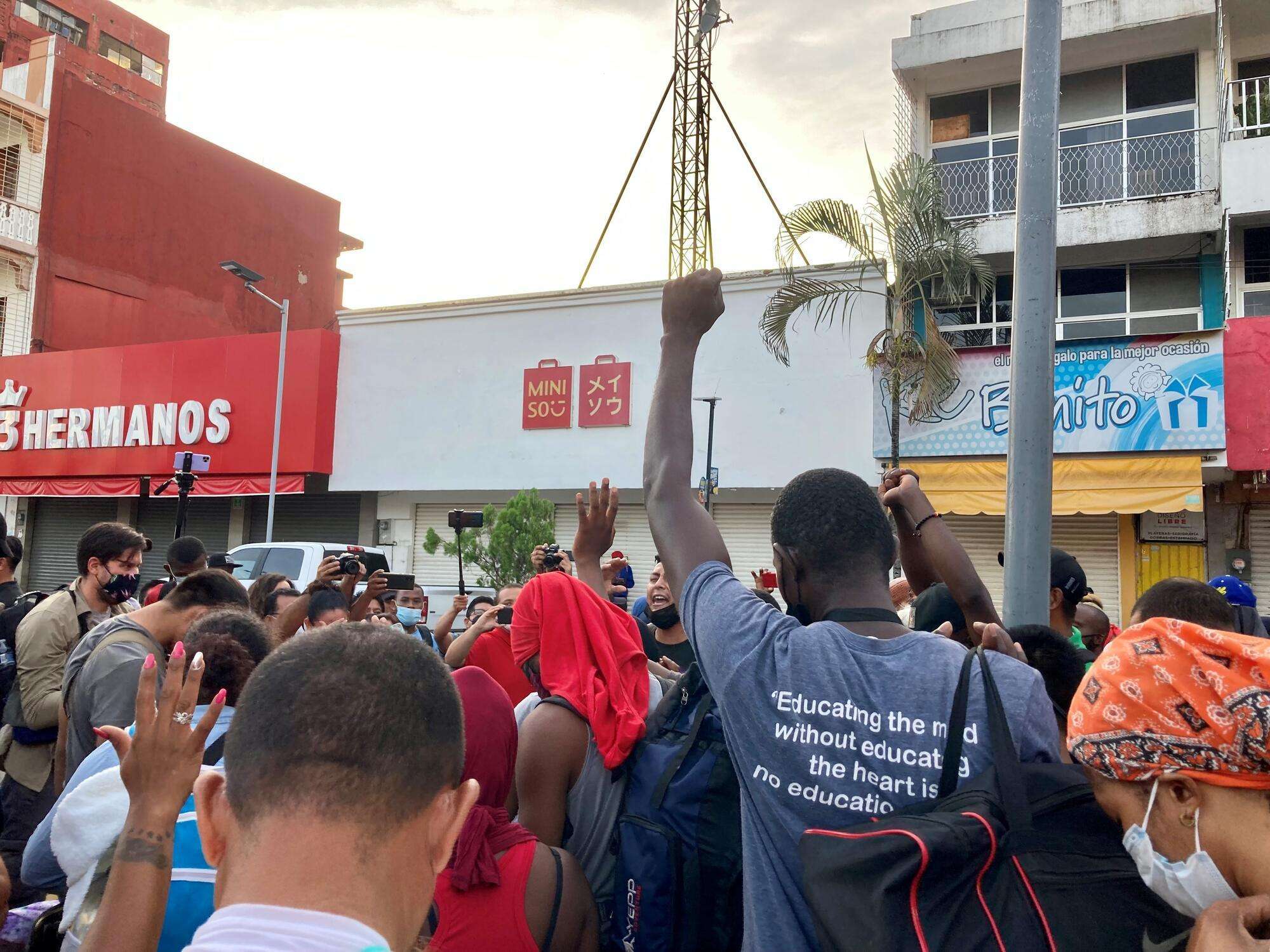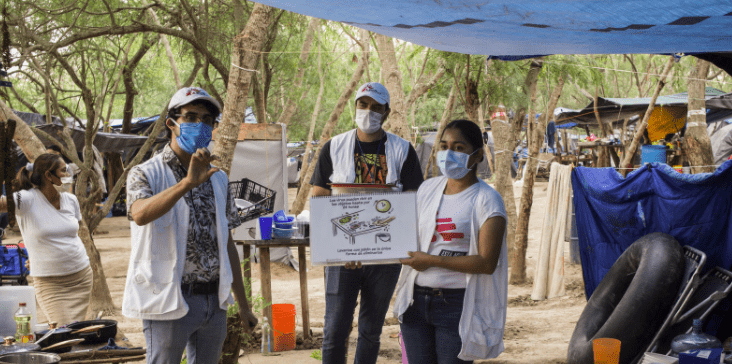MEXICO CITY/NEW YORK, SEPTEMBER 8, 2021—Tens of thousands of vulnerable migrants are trapped in extremely precarious conditions in northern and southern Mexico due to failed asylum policies and mass deportations from the US, the international medical humanitarian organization Doctors Without Borders/Médecins Sans Frontières (MSF) said today. MSF denounces the overcrowded, unsanitary living conditions and the lack of access to medical care and social services for migrants in Mexico, many of whom have fled violence or poverty in their home countries or have experienced extreme violence on their way to and throughout Mexico.
"These people find themselves with few alternatives to staying in overcrowded shelters or living on the street in makeshift camps in unsanitary conditions [that put them] at risk of COVID-19 infection," said Christoph Jankhöfer, coordinator of MSF's migrant project in Mexico. "We are concerned about the anxiety, depression, and hopelessness [people are feeling] in the absence of a sufficient response from the authorities".
An emergency intervention in southern Mexico
This week, MSF sent an emergency team to Tapachula in southern Mexico, where approximately 40,000 migrants are trapped without access to housing, basic services, or opportunities for employment. On September 4, 500 of these migrants joined a caravan heading north to protest their conditions and abandonment.
MSF’s team—which accompanied the caravan for part of the journey—treated patients for dehydration, headaches, muscle aches, and wounded feet. They also treated a case of hypoglycemia.
The migrants in Tapachula came from Honduras, Guatemala, El Salvador, Venezuela, Haiti, and Cuba. A significant number of people in Tapachula are women and children. They have been waiting in limbo for months. Many recently crossed the border into Mexico from Guatemala, while others were deported by the United States to northern Mexico and then transferred to southern Mexico by Mexican authorities.
US deportations cause a crisis at the northern border
More than 2,000 people are living in a similar situation in the northern town of Reynosa, some 280 yards from the international bridge connecting to Hidalgo, Texas. In Reynosa, migrants who are mostly from El Salvador, Honduras, and Guatemala are exposed to inclement heat and do not have adequate access to basic services or protection.
In Reynosa's Plaza de la Republica, there are only 18 public toilets available at the camp— approximately one for every 110 people. Those who want to bathe or wash their clothes must pay 10 Mexican pesos (approximately $0.50 US) to use the showers and sinks for 10 minutes. Drinking water (which is sometimes scarce), clothing, food, mattresses, tents, medicines, and medical consultations are being provided by civil society organizations.
“The only options they have are to stay in Mexico and try to survive in deplorable conditions, or attempt to cross into the US again," said Anayeli Flores, MSF's humanitarian affairs officer in Reynosa.
"Neither the Mexican nor the US governments are providing adequate support, despite the fact that it is US policies and Mexico’s cooperation with these policies that keep these vulnerable people in precarious conditions, violating their right to seek asylum."
In Reynosa, MSF provides primary health and mental health consultations and counseling through a team of social workers. MSF is also supporting the provision of drinking water at the camp. Between March and August of this year, MSF carried out 902 consultations. Teams are mostly treating respiratory, digestive, and dermatological conditions, largely due to severe overcrowding and lack of proper hygiene. Having walked long distances along the route, migrants also present with foot pain and general muscle aches.
Most of the people MSF assists have left their home countries because of violence. They have often also experienced violence along the migration route to and throughout Mexico. In addition to this trauma, migrants are dealing with the mental health impact of their living conditions, their migration status, and separation from their family members. This can lead to emotional disorders such as anxiety, stress, excessive fear, constant worry, and, in severe cases, psychological disorders.
Criminalizing migration
Most of the migrants in Reynosa, including women, pregnant women, children, the elderly, the LGBTQI population, indigenous, and non-Spanish speakers, have been expelled from the US through Title 42—a US policy that violates international law. The policy uses the COVID-19 pandemic as a pretext to block people seeking protection in the US and deport them to border cities in Mexico with the approval of the Mexican government. These policies have put migrants in direct danger and have caused incidents of violence.
"The situation of migrants in Mexico is unsustainable,” said Gemma Domínguez, MSF's general coordinator in Mexico. “Policies that criminalize migration, the lack of an adequate humanitarian response, and repeated violence and persecution against migrants are unacceptable and endanger the lives of thousands of men, women, and children”.
MSF urgently calls on Mexican and US governments to take immediate action to address the grave humanitarian situation of migrants throughout Mexico, especially those trapped in the border regions. The US and Mexican governments must work together to promote access to protection in the region.





